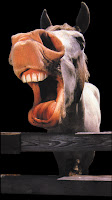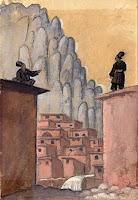A Turkish bath...

You are worth to people as much as they hope from you, teaches Gracian the philosopher. Not as much as they owe you. Only fools count on gratitude. If you want something, offer expectation in exchange. This reminds me of a story: The sweaty Mullah tired by the big city felt it was time to take a good bath. The chambers and washrooms of the old Court hammam in Konya were swarming with merry people glad to escape the sandy heat of the simoom, the poisonous wind of the summer. As his garment was poor and his face shy, Nasrudin was given a soiled towel, stinky slippers, a tiny piece of scorched soap and, of course, no attention. Well, at least they let him in. On his way out, he did not forget to leave an amazingly rich tip - a small gold coin. The following week, when he went to the bath, our Hoca was pampered like a pasha: large soft towels, sandal-wood clogs, silk peshtemal, precious scented soap at the soaking pools, refreshing drinks, total massage - at the limit between h...













